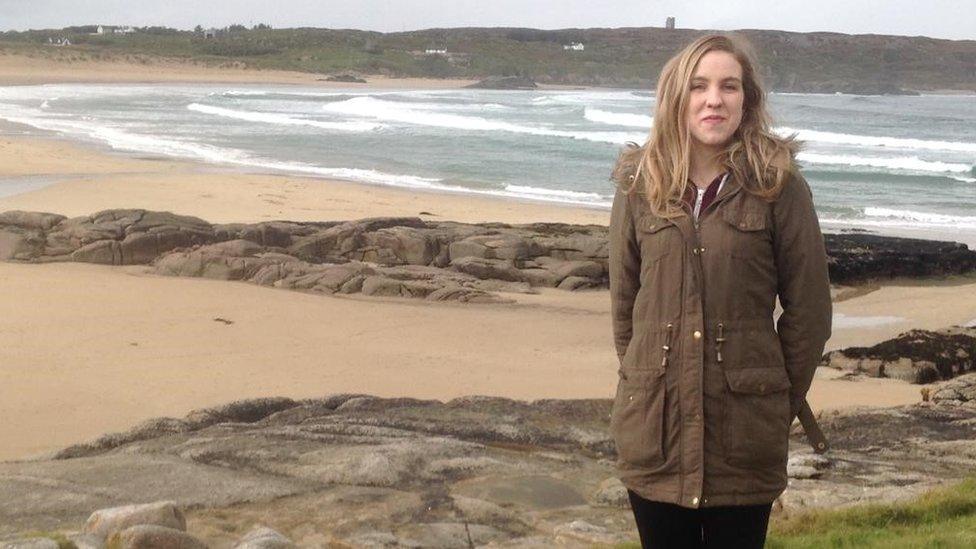Jean Quigley: Mother backs strategy to tackle violence against women
- Published
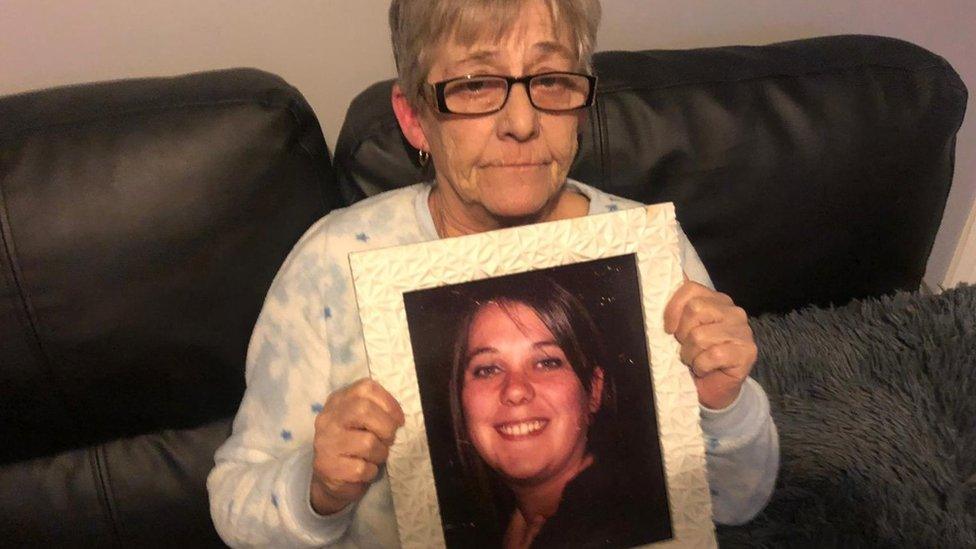
Emma McBride says her daughter's death felt like a nightmare that she can't get away from
The mother of a woman murdered by her partner in 2008 has backed calls for a strategy to tackle violence against women and girls in Northern Ireland.
Stephen Cahoon beat Jean Quigley to death, when she was pregnant with his child, at her home in Londonderry.
It emerged after trial that Cahoon had a history of violence against women.
Jean Quigley's mother, Emma McBride, said a strategy aimed at protecting women is "badly needed" and must be implemented as soon as possible.
"We need a strategy, it is very important," she told BBC Radio Foyle.
"We badly need something done about the abuse of women, because it's not on."
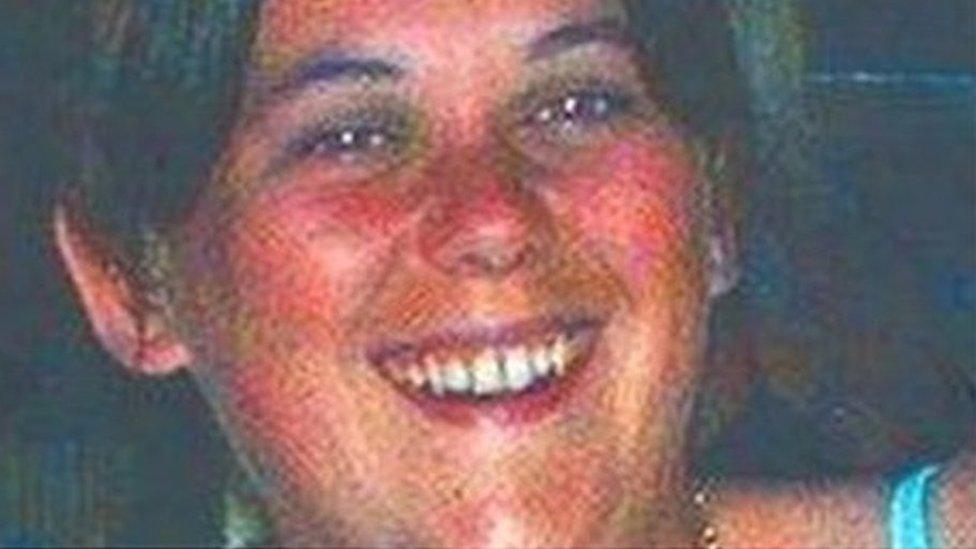
Jean Quigley was found badly beaten and strangled at her home in Derry
Mrs McBride's comments come following the murder of 32-year-old Natalie McNally, who was 15 weeks pregnant when she was stabbed to death at her home in Lurgan on 18 December.
Jean Quigley's mother said she could understand the anguish and pain that Ms McNally's family were going through.
"I go to the cemetery as often as I can but it takes the heart out of me, because Jean shouldn't be there," Mrs McBride said.
"It breaks your heart, no matter how hard I try to get away from it I cant."

Natalie McNally was found dead in a house in Silverwood Green
"Women are not brought into this world to be beat and battered," Mrs McBride said.
"They don't deserve people coming in and killing them, abusing them, murdering them," she said.
A silent vigil was held at Stormont last week for Ms McNally and Bruna Fonesca, who was found dead in an apartment in Cork on New Year's Day.
Following the vigil, Stormont's Executive Office said it anticipated a framework around an Ending Violence Against Women and Girls Strategy would be ready in the Spring for public consultation.
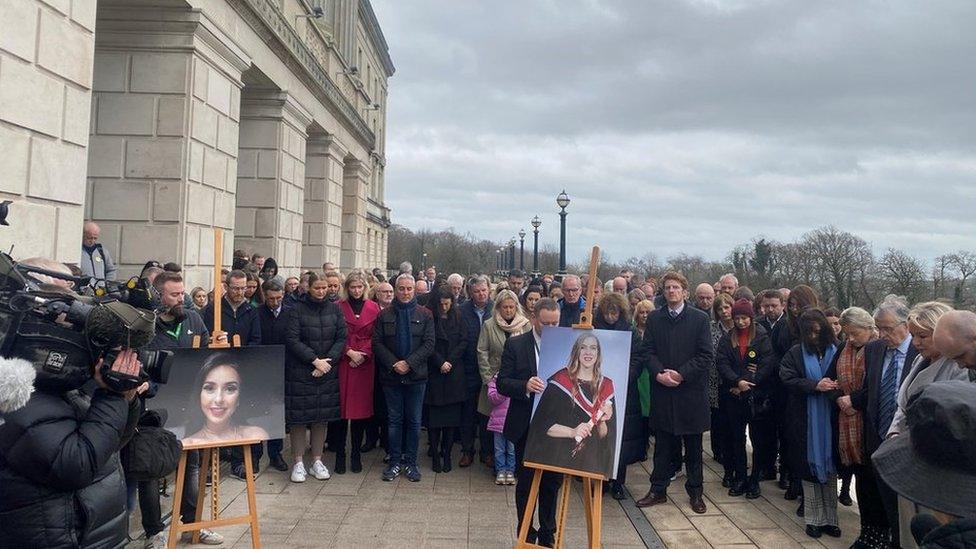
A silent vigil was held at Stormont for Ms McNally and Bruna Fonesca, who was found dead in Cork on New Year's Day
Speaking afterwards, Sarah Mason, chief executive of Women's Aid Federation NI, criticised the lack of political leadership in tackling violence against women and girls.
Ms Mason said the issue was "more important than anything else and they [the executive] have to deal with that".
Northern Ireland has been without a power-sharing government since February.
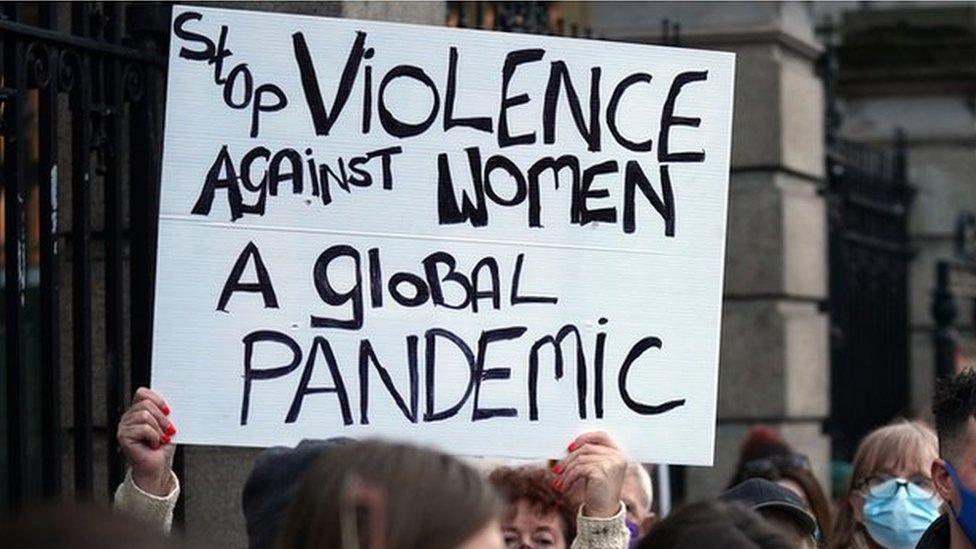
The PSNI has committed to "relentlessly pursuing perpetrators" of violence against women
In a statement to BBC Radio Foyle, the police and Department for Justice (DoJ) both highlighted an existing scheme that allows police to disclose information about a person's history of domestic abuse.
They said that such information can be supplied if requested by a concerned person.
In a statement, the police said that they launched their first action plan to tackle violence against women and girls in September last year.
"This important document sets out a clear framework for how the police service will play its part to tackle this important and enduring societal issue," they said.
"The action plan is focused on prevention, early intervention, partnership working and enhanced support for victims and has been influenced at a local level in collaboration with numerous key partners.
"We welcome additional legislation that strengthens powers to better protect women and girls and will continue to work closely with all partner agencies within Northern Ireland."
The DoJ also told BBC Radio Foyle that a new campaign highlighting that scheme will run again before Spring.
- Published4 January 2023

- Published5 January 2023
